The work of Stanford REAP on baby nutrition shows that babies in rural China are underperforming in cognitive development. During our Baby Nutrition project, we administered an internationally scaled test of cognitive and motor development to 2,000 babies. We found that around 40% of rural babies were significantly delayed in either cognitive or motor development, or both.
We noticed that our sample babies—regardless of age—all tended to perform poorly on the verbal sections of our test. We started wondering, why are rural babies doing so poorly on verbal development?
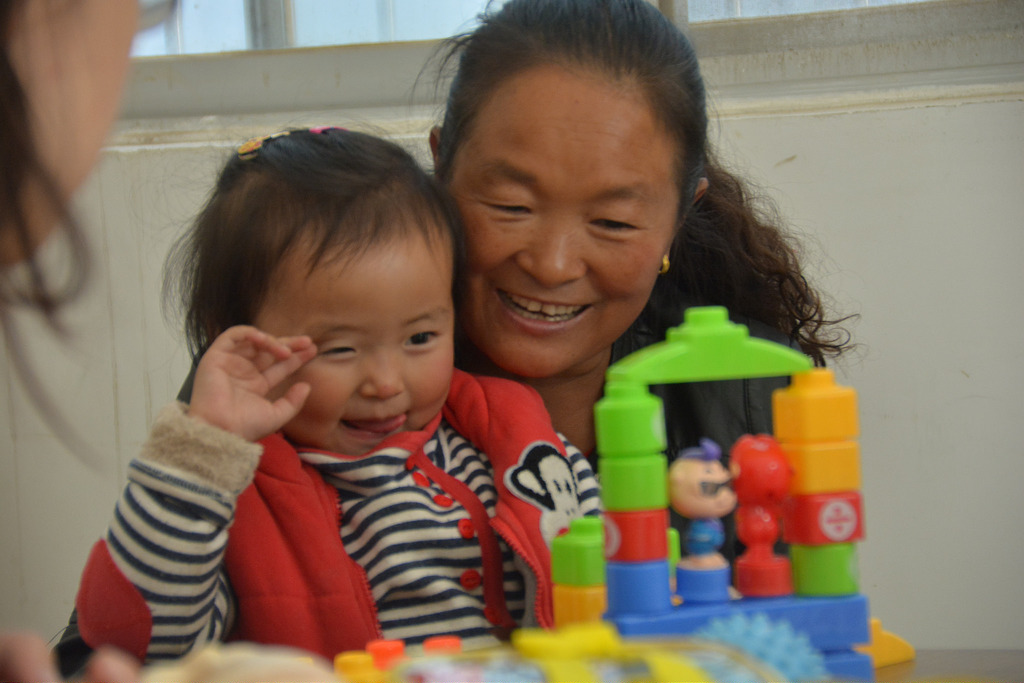 |
|
We explore the link between parenting behaviors and cognitive development. |
Recent international research suggests that the amount of interaction between a parent and child has a huge impact on babies’ cognitive—and especially verbal—development. Researchers discovered that the more parents speak directly with their children, the more children develop competency in language processing and learn new words. A study conducted in Colombia points to the importance of interactive parenting. In that study, children whose parents participated in a parental training course experienced larger improvements in their cognitive development test scores than children whose parents did not receive the parental training. With interactive parenting, babies experience major increases in their cognitive scores and listening/speaking abilities.
We believe that a lack of parent-child interaction may be having a large impact on babies' cognitive development in China, too. The qualitative research we conducted as part of our baby nutrition project suggests that the developmental delays in rural Chinese babies may, in fact, be exacerbated by their caregivers or parents. Only 5% of the parents tell stories to their babies and only 32% sing to their babies. None of the parents we interviewed reported talking to their babies, often saying in response, “Why would I talk to her? She can’t understand me yet!” We worry that this lack of parental engagement might be preventing rural babies from receiving the mental stimulation they need.
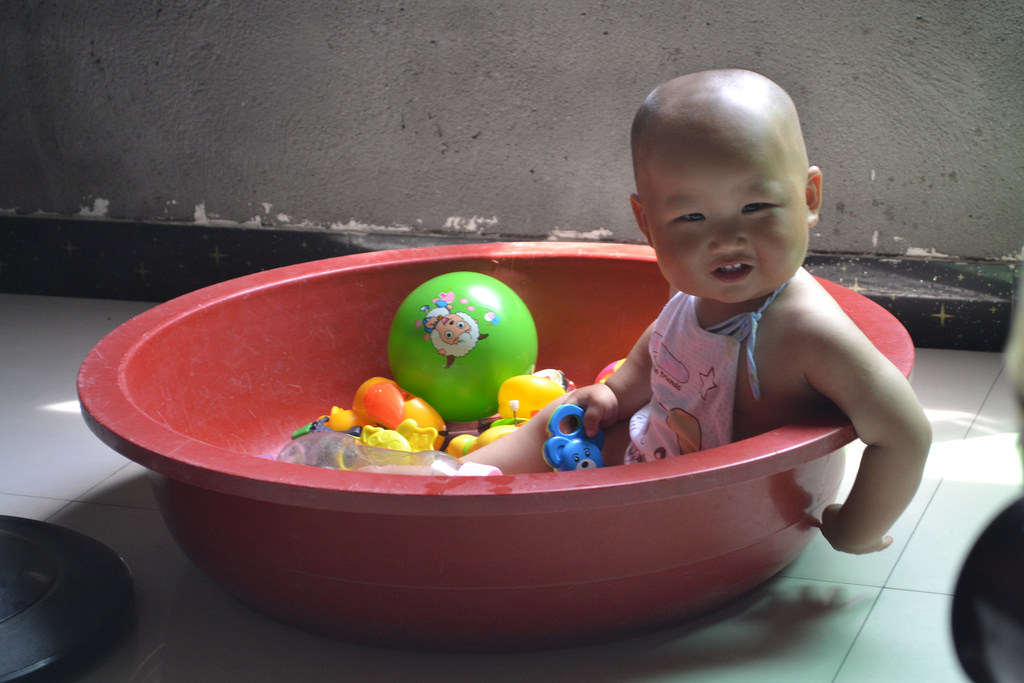 |
|
Parent-child interactions are crucial for verbal and cognitive development. |
The goal of this project is to better understand parenting practices in rural China. We aim to learn about the impact on child development of an intervention designed to increase parent-child interactions.
To meet these goals, Stanford REAP conducted a Randomized Controlled Trial (RCT) in Shangluo city in southeastern Shaanxi Province. Our project consisted of two arms: a control arm that received no intervention, and an intervention arm in which parents received training sessions on how to better engage their children on a day-to-day basis. Overall, 700 toddlers from Shangluo participated in the study, of which 275 received the home visit intervention.
 |
|
Through direct interaction between parent and child, we hope to spur the child's verbal development. |
In the intervention arm, caregivers received weekly one-on-one meetings with a trained professional. These trainers taught parents how to better engage with and better stimulate their growing child. Each week’s lesson was tailored to the child’s age and stage of development, and emphasized how interactive parenting can lead to increased child learning and cognitive development.
In preparation for our project, Stanford REAP designed and tested a weekly parenting curriculum tied to key child development milestones. The curriculum targets four areas of child development: Motor, Language, Cognitive, and Social-emotional. In total, our 6-month curriculum included 144 different activities for children 18-42 months of age. The REAP team also assembled sets of toys and books to accompany each week's activities, including balloons, play doctor kits, building blocks, and mini basketball hoops.
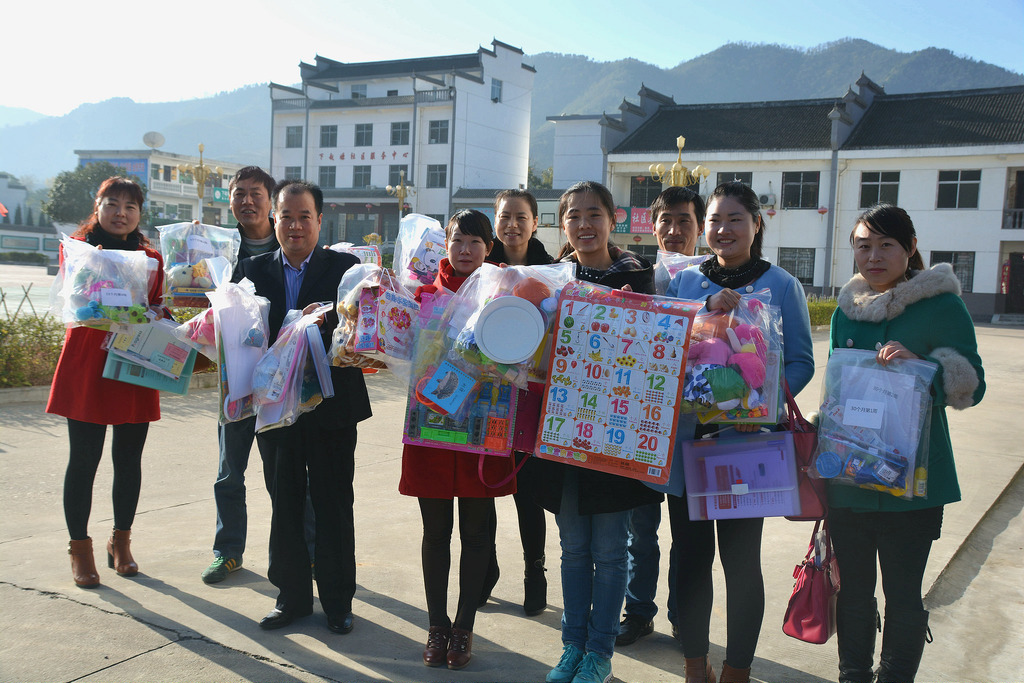 |
|
Our parent trainers provided many toys for children to explore and play with. |
In November 2014, our program officially launched in Shangluo prefecture, southern Shaanxi province. To implement the curriculum, we recruited 70 "parenting trainers" from local bureaus of the Family Planning Commission, the governmental group once entrusted with enforcing the ‘one child policy’. After undergoing an intensive training program, each parenting trainer was assigned a list of 1-4 households to visit each week. During each hour-long household visit, the parenting trainer demonstrated the week's new activities, and observed the caregiver's interaction with the child, offering tips and encouragement along the way. Our parenting trainers also supplied the toys needed to play that week's games and activities. At the end of the visit, the toys were left with the family, to be collected the following week and exchanged for new ones.
To read more about the launch of our pilot program in Shangluo, see our
From the baseline survey, we learned that while rural Chinese parents love spending time with their children, they have very little awareness of how to do so.
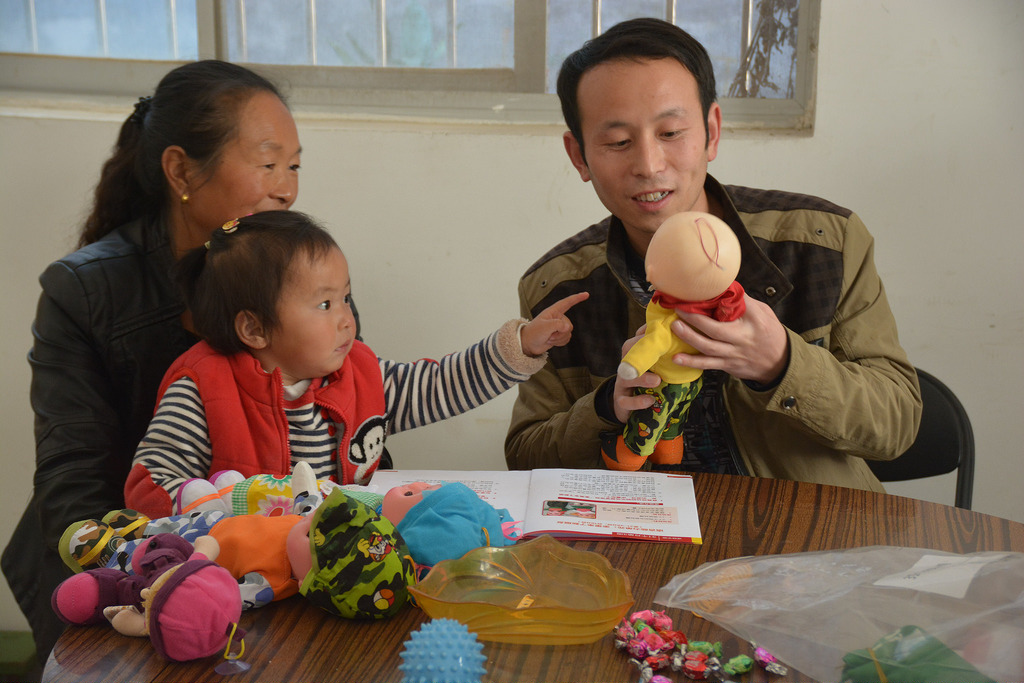 |
|
Toddlers in the treatment group were exposed to special games and physical interaction, to stimulate motor skills and learning. |
The vast majority (85%) of parents indicated that they enjoy playing with their child and believe doing so is important. At the same time, however, only half of the caregivers in our sample said that they actually knew how to read to their toddlers. Similarly, more than 60% of parents reported that they rarely sing or engage in direct verbal communication with their child.
Was our intervention able to improve the status quo?
After six months of data collection, our survey teams revisited all 275 treatment households and 425 control households. We found that caregivers in the intervention group had experienced significant improvements in the way they interact with their child. Caregivers in the intervention group reported both that they enjoyed their interactions with their children more, and also that they felt more actively engaged during interactions with their child.
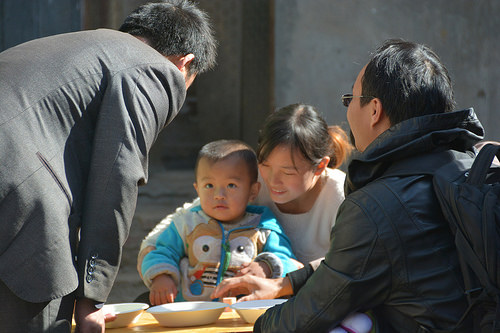 |
|
Specially trained instructors visited each household once a week to teach caregivers new games to play with their children. |
These changes in attitude also translated into markedly more frequent and more active parent-child communications. By the end of the study, caregivers in the intervention group sang to their children, read to their children, and used toys to play with their children at significantly higher rates than did parents in the control group. Overall, we saw nearly a 20% improvement in the frequency of quality parent-child interactions.
Our data also shows that these behavioral changes translate into slight improvements in child development; however, these improvements are too small to be statistically significant. This may be due to either the brevity of the investigation or to the small sample size. This study was originally designed to act as a pilot program, so it was not fully powered to detect statistically significant changes in child development. We hope to address this issue in our full scale study.
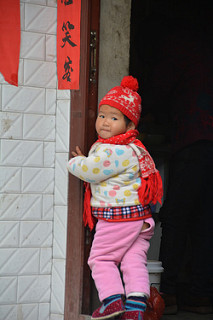 |
|
Our future study will follow a greater sample of children for a year. |
We are now in the final stages of preparing for a new study of parenting practices that will last for a full year, and will include over 1,000 caregivers and their toddler-aged children. Due to its longer duration and larger sample size, our hypothesis is that this study will detect a statistically significant link between improved parenting strategies and child development. Unlike the pilot program, this study will involve caregivers regularly visiting designated teaching centers in their villages to learn effective ways of interacting with their children. Stay tuned for more details!